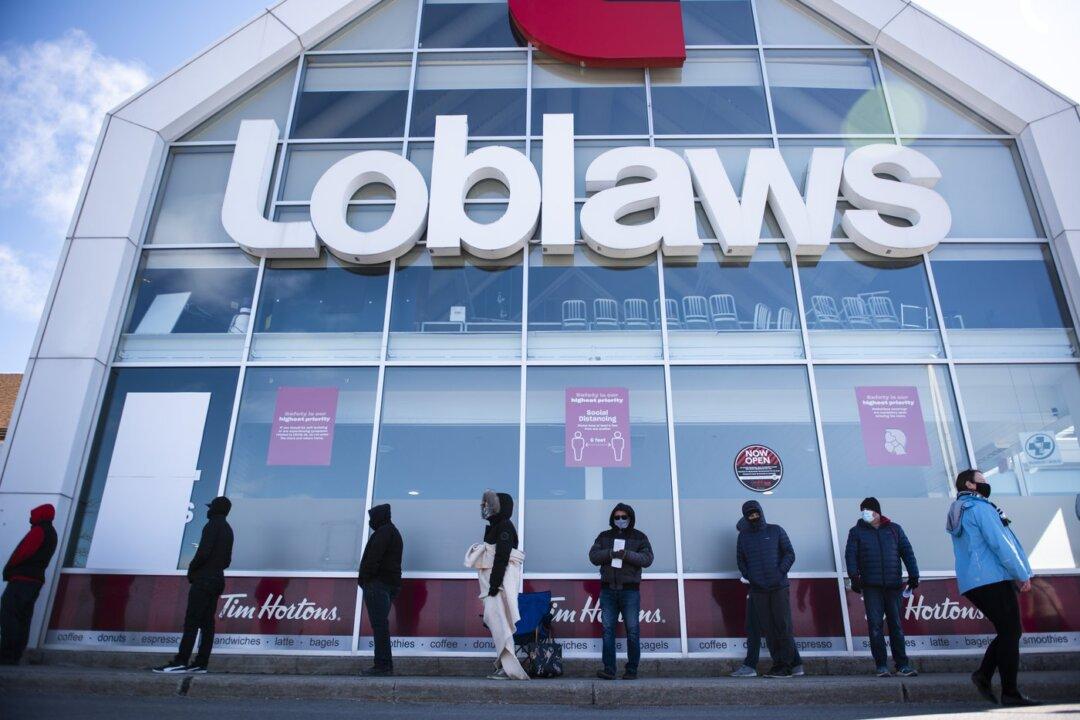Canada’s big three grocers say rising food prices are shaping shopping habits, with Loblaw Companies Ltd. the latest to offer insight into how people are saving money on their grocery bill amid soaring inflation.
Consumers are shopping for groceries more often, buying less with each visit and shifting to value-oriented stores as pandemic restrictions loosen and the cost of food increases, Loblaw said Wednesday as it reported its first-quarter results.





